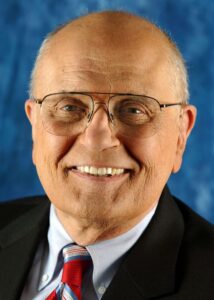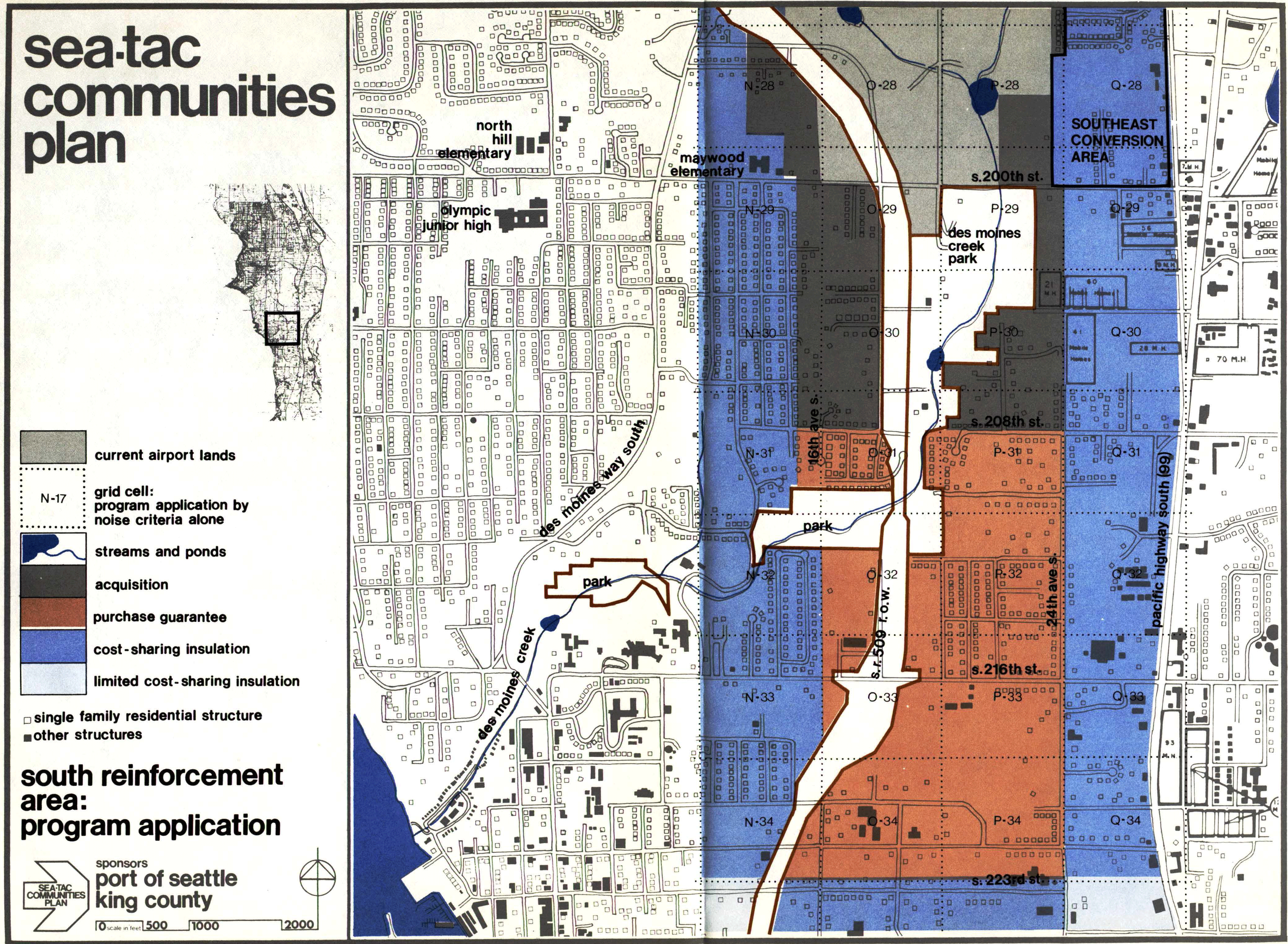Almost everything useful I’ve ever learned came from marriage counseling. 😃
I’m always fascinated how opinions about “the airport” so often fall into what therapists call “all or nothing thinking“. People will say things like
- The airport was here first!
- You did hear the airplanes flying overhead when you were looking at houses, right?
- Don’t like it? Move!
 All these statements strike me as being along the lines of the “America? Love it or leave it!” argument I heard a lot when I first moved here in the 70’s.
All these statements strike me as being along the lines of the “America? Love it or leave it!” argument I heard a lot when I first moved here in the 70’s.
Rather than tell you why all three of those statements are absolute rubbish ( 😀 ) I’ll just tell you I’ve never understand the attitude that seems to go with all that. Perhaps that’s why I became an engineer. For me, things may (or may not) be good enough at the moment. But they can always be improved. And we should never stop trying.
My old Congressman
 As many of you know, when I came to America, I lived in Detroit. And for some reason, my congressman always seemed to be John Dingle no matter where I lived. 😀 He was not above changing Districts from time to time for political advantage. One of those guys who sticks around for fifty years. And when he got too old? Of course, he got his wife to take his spot. That’s old school. 😀
As many of you know, when I came to America, I lived in Detroit. And for some reason, my congressman always seemed to be John Dingle no matter where I lived. 😀 He was not above changing Districts from time to time for political advantage. One of those guys who sticks around for fifty years. And when he got too old? Of course, he got his wife to take his spot. That’s old school. 😀
John knew how to work Detroit. He was a friend of the unions and the car companies. Ford’s HQ was in his District. So were some of the largest factories ever built.
But the guy absolutely looooooved fishing. He started to get a real bug up his ass when some of his fave spots got polluted and he could no longer catch anything. All politics is local, right?
But being one of the most powerful congressmen since evehrrrr, he turned that annoyance into action in a way you and I could not. For openers, he sponsored The Clean Water Act. And then revisions to the Clean Air Act so major that what his Congress passed is now what people think of when they mention the CAA. And while he was, ya know, engaged, moved heaven and earth to help get the National Environmental Protection Act (NEPA) and then the Environmental Protection Agency (EPA) going.
None of that was particularly entertaining for “The Big 3” US auto companies–at the time the largest corporations on the planet, and all headquartered in Detroit. But he found a way to work all three sides of… er… the street.
John Dingell was from an era that still made deals. You get something. I get something. It definitely had all the hincky stuff we hate about politics, but it also got a lot of fabulous things done that would be simply impossible with more ‘highly principled’ people.
Seattle
When we moved here, I instantly recognised Seattle as being a ‘factory town’ like Detroit. It was before the whole ‘tech boom’ and this was still Jet City. The neighbourhoods of DM? They were built in the 70’s for Boeing workers.
So I guess I assumed that our government and the locals would have that same “You get something. I get something” vibe. But apparently not. By the time we got here, during the Third Runway fight, people had taken sides. And many people still seem to be in the same spots today.
Something happened here. I dunno what. But at some point, the politics changed. It’s tough to admit, but almost none of our State or Federal electeds have that “You get something. I get something” approach to Sea-Tac Airport now. But it was there in the 70’s. And that’s how the Sea-Tac Communities Plan got passed.
But today there seems to be an attitude that aviation is simply too important to the regional economy to push back on. Or maybe it has something to do with fragility. Back in the day, American auto companies were indestructible. You could demand lower pollution, higher mileage, better wages, etc. because you figured nothing could hurt them.
But since the Boeing Bust in the 70’s and then de-regulation in 1987, the aviation industry always seems to be just one bailout away from disaster.
What people didn’t notice in the 70’s was that the auto companies had already started moving out of Detroit. By the time my family moved to Puget Sound in the 90’s, most people still thought of Detroit as The Motor City. But actually, the vast majority of American cars hadn’t been made in the area for decades. So, there were not all that many auto jobs. Auto-retirees? For sure. 😀 Auto jobs? Not so much.
Reality Check: Economics
It’s the same way here in Des Moines. We have lots of Boeing retirees. And we definitely have a lot of airplanes flying overhead. 😀 But Des Moines is no longer home to very many living wage aviation workers–not even people in secondary industries like the construction workers who built the International Arrivals Facility. Lots of people may work at the FAA building or in the warehouses along 24th Avenue. But neither warehouses or FAA buildings generate sales tax for the City. And those workers generally do not live in Des Moines.
Former Mayor Bob Sheckler died this week. He was sort of the John Dingle version of Des Moines–in the sense that the guy seemed to be around forever. 😀 But I don’t want to take that too far. The Four Points Hotel on Pacific Highway was his big project. But he insisted it would be packed with airport people. Never really happened.
Even today. Everything the City sells in terms of ‘economic development’ seems tied to the Port. Just look at how the new ferry is being marketed.
Reality Check: Environment
If nothing else, the airport is always ranked #3,#2 or #1 among the largest polluters in the State of WA. But airports look glamorous. They do not look like a ginormous smokestack. However they are.
Our life expectancy is lower. We know enough at this point to say that it’s bad for the unborn. And we know that kids who spend their childhood under the flight path will have higher risks of various health problems, including evidence of cognitive impairment.
And the noise is bad for your health. Whether you know it or not. You may looooove Swedish Death Metal, but chronic exposure to any loud noise is not great for your entire body. (And your kids, btw.)
Keep those beaches open!
 The perverse incentives for local politicians and business are exactly the same as for Mayor Larry in the movie Jaws. You know there’s a problem (Bruce The Shark/Air pollution), but you don’t want to make too big a deal about it. And you certainly don’t want to close the beach! You want to tell everyone that your town is a great place to live. So you do less than you could/should because it might create negative press for the city.
The perverse incentives for local politicians and business are exactly the same as for Mayor Larry in the movie Jaws. You know there’s a problem (Bruce The Shark/Air pollution), but you don’t want to make too big a deal about it. And you certainly don’t want to close the beach! You want to tell everyone that your town is a great place to live. So you do less than you could/should because it might create negative press for the city.
You become so convinced that the entire City would shut down if we offended the Port, we don’t even work to get sound insulation; or decent air quality monitors; or financial compensation. You forget how to even try. Which is exactly where we’re at today.
Like Detroit did for decades, we just cannot seem to keep ourselves from selling the idea of Sea-Tac Airport (and the Port of Seattle) as being that essential to Des Moines. Even though that era is in the rear view mirror, and even though the harms now far outweigh the benefits.
It’s not all or nothing…
This is a great place to live and we deserve cleaner air and less noise. The Port can afford it, and we should be compensated for it. That was actually the understanding here in the 70’s. And I’m going to prove it to you. Over the next few weeks, I’m going to be toggling between the Marina and something most of you will not remember, the Sea-Tac Communities Plan.
The Sea-Tac Communities Plan (SCP) was adopted by both King County and the Port in 1976 as the Comprehensive Plan for all the airport communities. The idea was to consider the community in all future airport planning. Together. The Port. The FAA. King County. UW. Even HUD. They all worked together on ways to finance future airport growth and community growth.
The FAA threw in bags of money to buy land and do the first sound insulation systems. That’s how North SeaTac Park got created. And the Des Moines Creek Business Park, too. Like NSP, the DMCBP was meant to benefit the community, not the Port. We had zoning options, but the benefits were meant to be ours. The Port was supposed to remain a public utility managing passengers and cargo. It was not meant to build a real estate empire with our tax dollars.
Here is one map from the plan showing the area we gave to the Port to develop DMCBP Phase IV. $3M cost. For $3.4M annual lease revenue. To give you some context. The cost of the land we gave away was $3M, which is about 1.5% of the Port’s cash on hand. But the $3.4M a year in structural revenue would fix every problem Des Moines has ever had and ever could have. That was supposed to be ours.

Summary
Unlike Mayor Larry, Des Moines is not a one-industry town anymore. But like Detroit, we got stuck in a mindset that no longer applies. And we got saddled with financial problems exacerbated by having the fortune to being next to 20th largest airport in America, which then grew into the 8th largest airport in America.
The Port is doing quite well at the moment. But the money goes overwhelmingly to the north and east of King County. We subsidise their wealth with our health. And whether you hate the noise so much it makes you cry, or you absolutely live for the sound of a good engine run-up first thing in the morning? We should be compensated.
Because it was never about anyone’s individual preferences. The Sea-Tac Communities Plan was meant to insure the well-being of the airport communities; forever. Not just us, but those who come after us.
Ironically, as I think about the future, I keep increasingly thinking about John Dingle. You get something. I get something.



